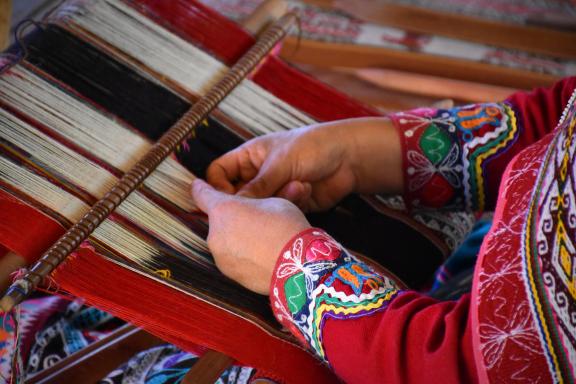Not all who have a grievance will complain
Imagine a very large development project. Everyone is very keen to get this project underway as soon as possible. The project staff, therefore, go to the project site and inform the villagers there that the project may require some changes to their landholdings.
Unfortunately, as the project staff do not speak the local language of the villagers, confusion arises as to the exact nature and consequences of the changes, and the rights of the villagers. In particular, the villagers are not aware of the existence of a Grievance Redress Mechanism (GRM). As a result, the villagers are left feeling rather confused and helpless when the project staff arrive on their lands two months later asking them to vacate their lands.
Indeed, the villagers have made no complaint, but does that mean they have no grievance? Almost certainly not. In this scenario, like in life, silence is not always the product of bliss; we may remain silent only because we see no other option. Fortunately for the villagers, a local NGO has been following this project and is aware of the situation. They file a news-story documenting the plight of the villagers. This comes to the attention of the Grievance Redress Mechanism of the entity funding the project. Can they do something about it?
One of the unique functions of the Independent Redress Mechanism (IRM) of the Green Climate Fund (GCF) is the ability to self-initiate proceedings, and this was designed specifically for situations such as the one described above. Proceedings may be self-initiated when three conditions are met. First, the IRM must receive information from a credible source that a GCF funded project or programme has or may negatively impact a person, a group of persons, or a community. Second, the information, if true, must have the potential to pose a significant reputational risk to the GCF. Third, the persons negatively impacted must be unable to access the IRM. If these conditions are met, the IRM can proceed to investigate and seek to resolve the issues.
In August 2018, as a result of routine press monitoring, the IRM came across three articles that raised concerns about GCF Funded Project FP001: Building the Resilience of Wetlands in the Province of Datem del Marañón, Peru. The project aims to enhance the resilience capacity and the livelihoods of the indigenous communities living in the rich carbon stock wetland ecosystem in the region of Loreto, Peru. The project also aims to reduce greenhouse gas emissions from deforestation. An important activity designed to achieve these ends is the creation of environmental conservation areas (ACAs).
The articles raised several concerns about the project. First, the articles questioned the impact of the ACAs on the ongoing efforts of the indigenous people in the region to secure recognition of their collective customary lands. Second, they also questioned the adequacy of the Free Prior Informed Consent (FPIC) process conducted. FPIC grants indigenous peoples the right to be meaningfully informed about a project that may affect their rights or their lands, and furthermore, allows them to give or withhold consent to such a project. Finally, the articles highlighted issues relating to the risk categorisation of the project. Every GCF project or programme is assigned a risk category, which is based on the GCF’s environmental and social standards. This categorisation will then, for example, affect the nature and depth of future environmental and social assessments and engagements in relation to the project.

Having determined that these articles raised credible concerns with the GCF funded project, the IRM initiated a preliminary inquiry to determine whether there was enough evidence to initiate proceedings. As part of its preliminary inquiry, the IRM reviewed documents and interviewed key external and internal stakeholders. Having done this, the IRM concluded that there was enough evidence, to initiate proceedings.
Rather than commence proceedings, however, the IRM determined that it would be more beneficial for all stakeholders involved if it were to directly engage with the Secretariat to see whether remedial measures could be implemented quickly and cheaply. Following productive discussions with the Secretariat, the Executive Director of the Secretariat — Yannick Glemarec, agreed to time-bound undertakings designed to remedy the identified concerns.
Four action items were agreed to. First, the Secretariat agreed to issue guidance on FPIC (particularly documentation requirements) to all Accredited Entities. Second, they agreed to issue guidance to Accredited Entities on how to assess risks and categorise projects when Indigenous People are involved. Third, they agreed that the AE, or alternatively the Secretariat, would commission an expert legal opinion, which will assess whether the ACAs will adversely affect the land rights of the Indigenous Peoples or undermine their ability to title their lands. Finally, the Secretariat agreed to ensure that the FPIC documentation submitted by the accredited entity for the establishment of the ACA is complete and in accordance with the guidsance issued by the GCF.
As the situation currently stands, the IRM is monitoring the implementation of the action plan. The Secretariat has already implemented two of the four actions items listed above. Namely, they have published guidance on FPIC and on screening and categorising activities involving indigenous peoples*. The Secretariat has sought additional time in relation to the other two items citing complexity of the assessment process, and availability of expertise as the main reasons for the delay. The Secretariat has however confirmed that the ACAs will not be established until the land titling assessment has been completed.
A complete record of the case, steps taken, and progress made in relation to the action plan can be found on the IRM’s Case Register page. This can be accessed using the following here.
* For Guidance on FPIC see, http://greenclimate.fund/documents/guidelines-indigenous-peoples-policy (visited 6th November 2019); for guidance relating to screening and categorizing activities involving indigenous peoples see, https://www.greenclimate.fund/document/sustainability-guidance-note-screening-and-categorizing-gcf-financed-activities (visited 6th November 2019).